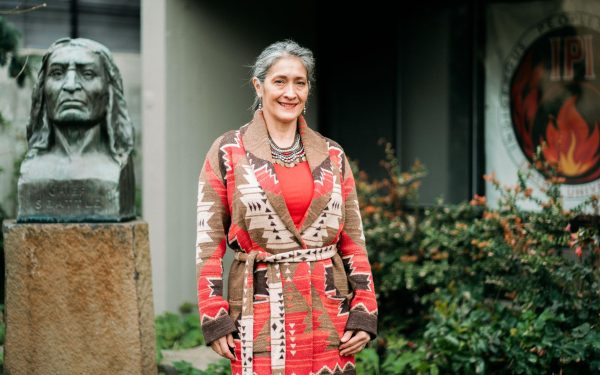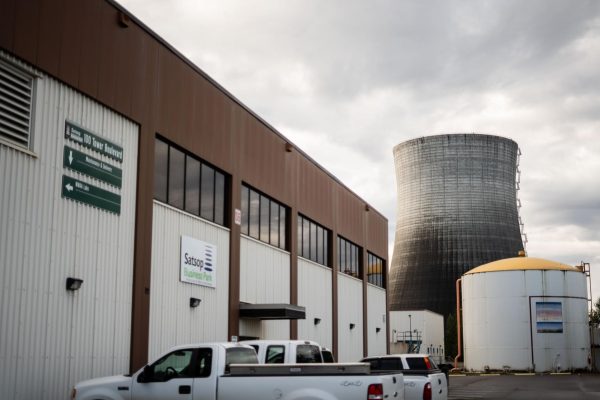Crosscut Festival Highlights Racial Injustices from 2020 in Virtual Format
After a year of anticipation, people from around the world were able to come together virtually for the fifth annual Crosscut Festival. This year’s festival had over 50 speakers for the event that ran May 3-8, including Speaker of the House of Representatives Nancy Pelosi, Senator Amy Klobuchar, anthropologist Jane Goodall, editor-at-large of The 19th Errin Haines and author Peter Singer.
The speakers this year ranged in journalists, politicians, authors and creators from around the nation to discuss issues in the Seattle community. After the speaking events that occurred in 2020, many presentations discussed racial and social injustices as well as environmental issues.
To kick off the event, Crosscut reporter David Kroman had a conversation with former Seattle Police Chief Carmen Best.. The two discussed the role of police in society following the murder of George Floyd over a year ago. With protestors urging the defunding of police departments recently, Kroman and Best started the conversation about police involvement in areas they may not be necessary.
“I don’t think it is any secret that there’s discussion about officers responding to a lot of calls for service that might not be well within what we would expect from policing, but often, in my view, it is because we have other failed systems or inadequately supported systems that officers are often responding to,” Best responded to Kroman. “If those other systems were more appropriately capable of dealing with those issues, or actually engaged, involved and supported fully and we worked in tandem, I think we would have a lot better responses.”
Crosscut’s Arts and Culture Editor Brangien Davis continued the conversation about how impactful 2020 and the COVID-19 pandemic have been to peoples lives at the event May 5. She led a conversation with artists Teddy Phillips, Monyee Chau and Steven Miller.
Phillips used his graphic arts and muralism background to create three posters focused on the Black Lives Matter movement. He was also one of the 16 artists to paint the phrase Black Lives Matter on Pine Street in Capitol Hill.
“I want to be the voice for the voiceless and really try to elevate and advocate for justice on their behalf since they can’t anymore,” Phillips said during the event.
Many other conversations of the festival discussed racial issues throughout the past year and looking into the future. Speakers also delved into topics of sustainability and politics over the course of the five-day festival.
Jake Newman, Director of Events for Cascade Public Media, was in charge of planning the Crosscut Festival this year. He talked about what he hoped the festival would share with the audience this year when he was planning it.
“This year I was thinking about 2020 as this inflection point where one era of history ended and another was beginning. So, that overarching theme sort of drove the choices in creating this festival,” Newman said. “Obviously, last year was an important year for the conversation around race and the reckoning with the different systemic ways that that has impacted our culture and what the last year has done with how we look at these issues.”
With the festival being virtual this year, the audience and speakers were able to join from around the world. This resulted in almost five times more attendees than previous years. While conversations between the audience and speakers were limited due to pre-recorded sessions, attendees were able to post comments that a member of Crosscut would reply to with an answer or resource if possible.
Conversations in the festival also expanded to national levels and how they intersect with the local conversations. Newman also shared that Crosscut will rebroadcast the recordings of the sessions on KCTS9, allowing the festival to reach even more viewers than ever before.
“The impact [of the festival] is much bigger this year,” Newman said. “I hope that at the end of the day people are energized about being engaged and that we find ways to spotlight the intersection where race and the economy impact each other or where politics and the environment impact each other.”
Although the Crosscut festival looked different this year, the events brought to light many of the issues communities across the nation and world have faced over the last year.










